FEATURES
- Real-time data visualization and historical trending.
- Support for multiple languages and integration with Develop applications with Python, LabVIEW, and Visual Basic libraries.
E-Mobility Temperature Monitoring
Temperature management is a critical aspect of electric vehicle (EV) design, development, and testing. The performance, safety, and longevity of key EV components—such as batteries, motors, power electronics, and charging systems—depend on accurate and reliable temperature monitoring. OSENSA’s advanced fiber optic temperature sensors provide the precision and durability needed to meet these challenges, ensuring optimal performance and safety throughout the vehicle's lifecycle.

Our fiber optic temperature monitoring solutions support both centralized and distributed architectures, making them suitable for component-level testing as well as full vehicle testing.
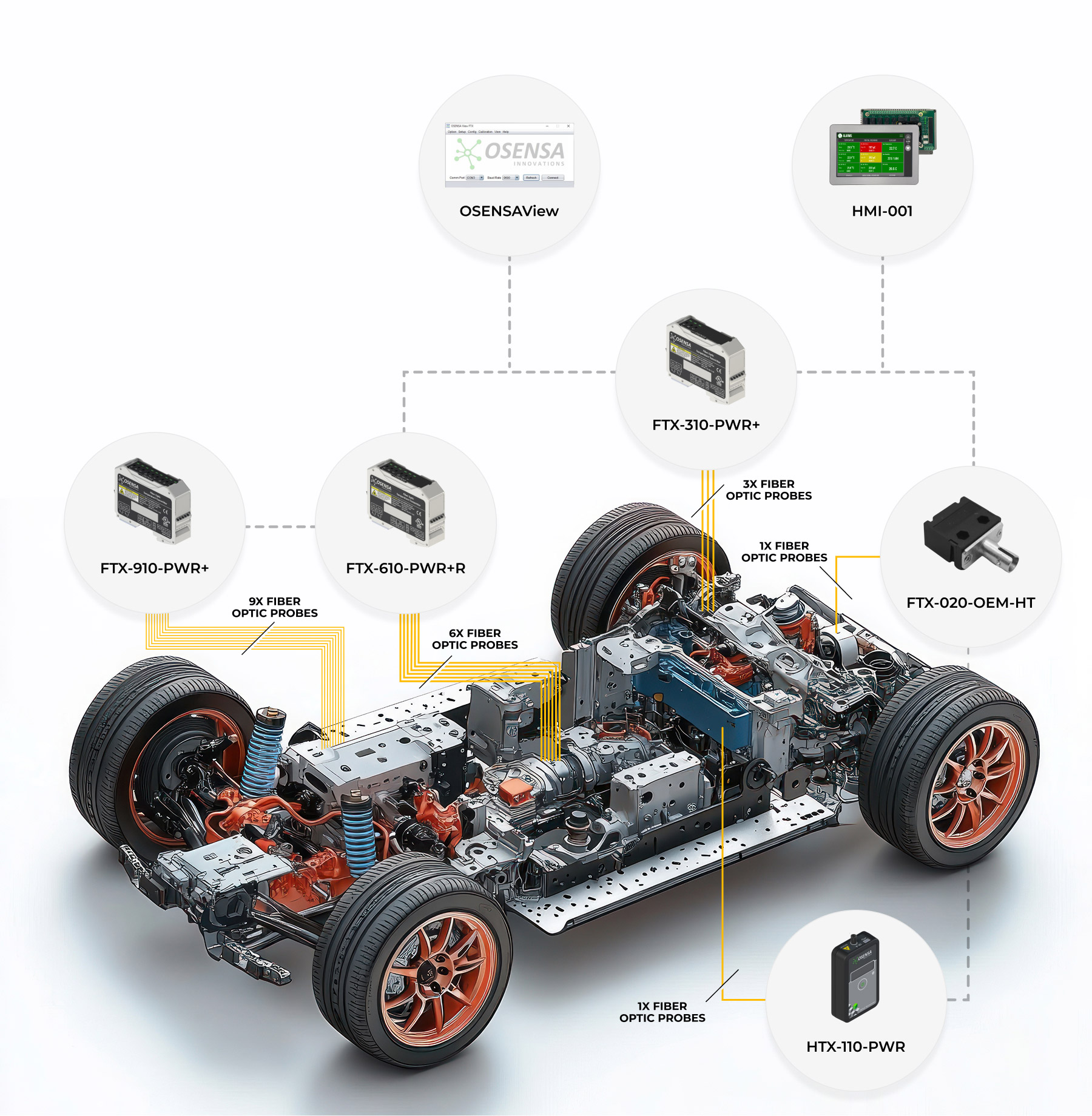
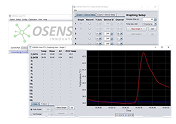
FEATURES
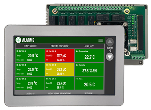
FEATURES
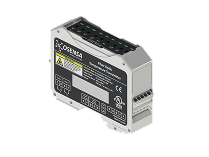
FEATURES
SPECIFICATIONS
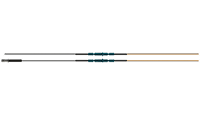
FEATURES
SPECIFICATIONS
Decades of experience in fiber optic sensing technology.
Leader in the next-generation temperature monitoring solutions.
High-performance sensors designed for the toughest applications.
Dedicated to providing exceptional service and support.
Fiber optic temperature sensors are revolutionizing the way electric vehicles are designed, tested, and monitored.
OSENSA’s fiber optic sensor’s unparalleled accuracy, durability, and ease of use, provide the critical data needed to optimize performance, ensure safety, and extend the lifespan of EV components. Whether you're testing individual components or a complete vehicle, or looking for a cutting edge technology to monitor temperature in your EV charging stations, OSENSA’s solutions offer the reliability and precision you need to stay ahead in the rapidly evolving EV industry.
Temperature Transmitters
Highest accuracy, highest reliability, and lowest cost fiber optic temperature sensing solutions.
9 Ch, RS-485 Only
6 Ch, RS-485 Only
3 Ch, RS-485 Only
9, 6 or 3-ch Transmitter, RS-485 Only, with 2 Relays
9, 6 or 3-ch Transmitter, RS-485 Only, with 2 Relays
9, 6 or 3-ch Transmitter, RS-485 Only, with 2 Relays
1 Ch, OEM Module SPI or Modbus
Handheld
Temperature Probes
Electromagnetic radiation immune, high voltage, RF, magnetic field compatible fibre optic temperature probes.
2.3mm Nylon, 1000µm POF
8672 Commerce Ct.
Burnaby, BC, Canada V5A 4N7
Tel: 1-888-732-0016
(Toll-free Canada/USA)
1-604-259-7177 (International)
Copyright 2026 © OSENSA INNOVATIONS | Site Map